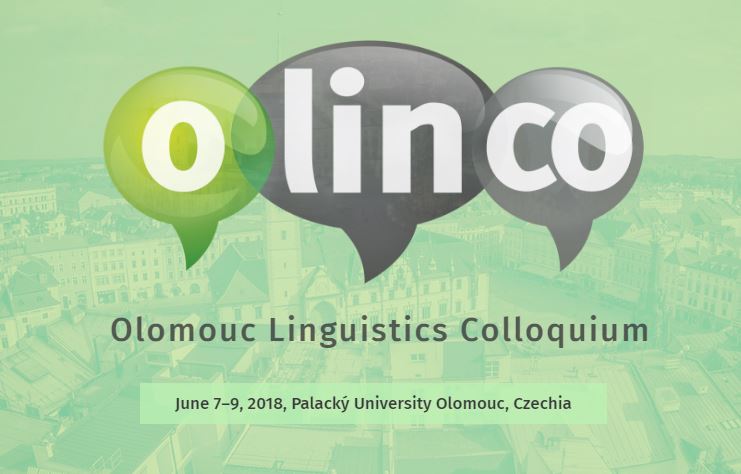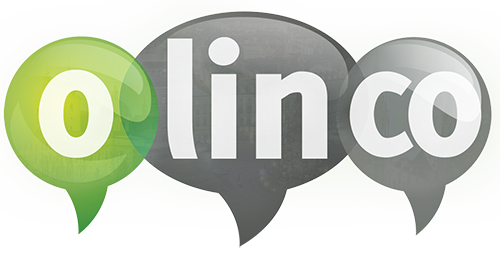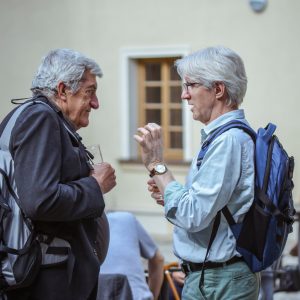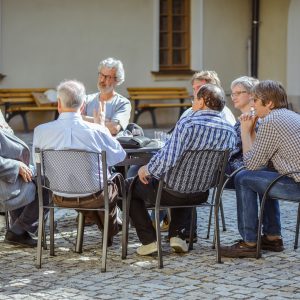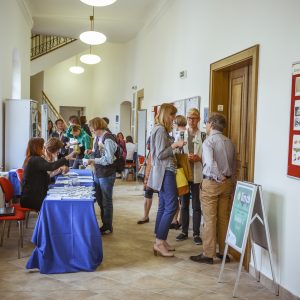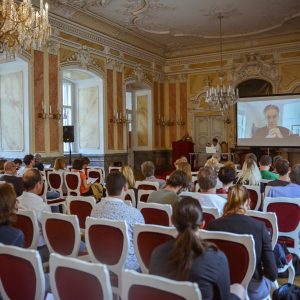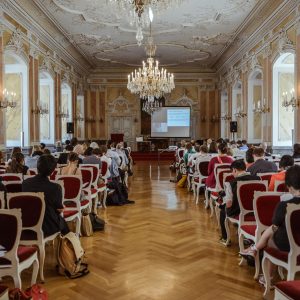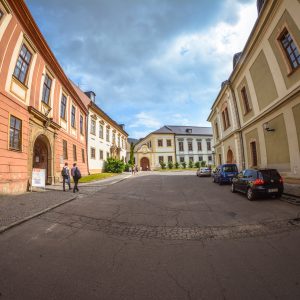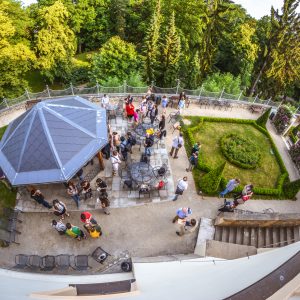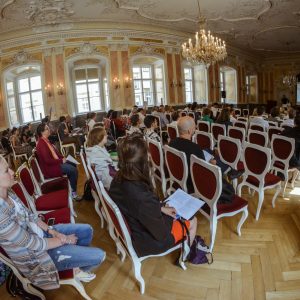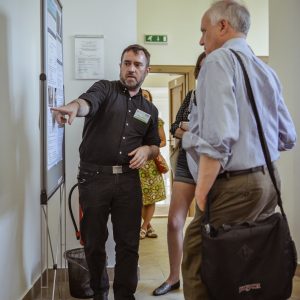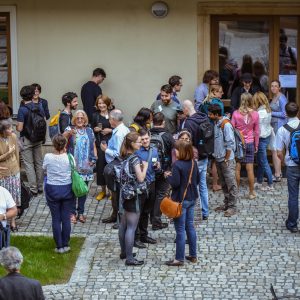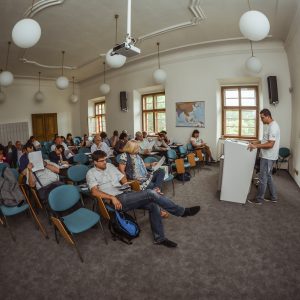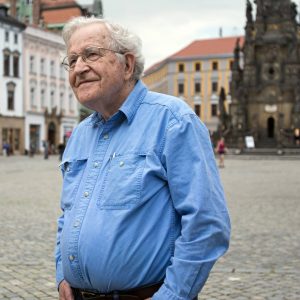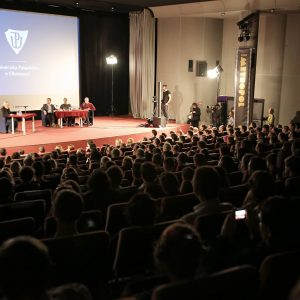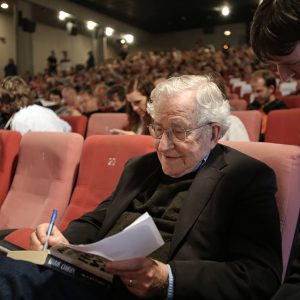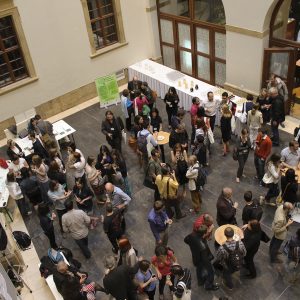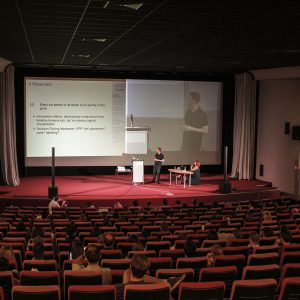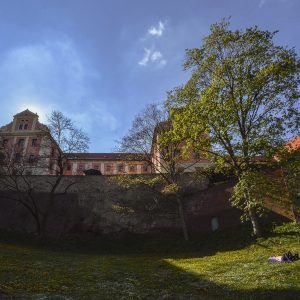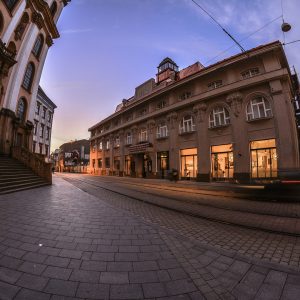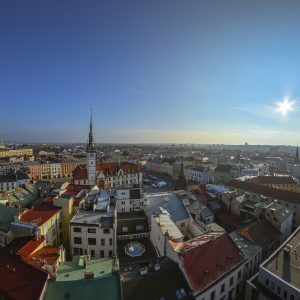The Olomouc Linguistics Colloquium (Olinco) is a general linguistics conference held biannually at Palacký University Olomouc, Czech Republic. It covers synchronic or diachronic aspects of grammar, phonology, semantics, and pragmatics. Papers may treat language description, language acquisition, performance, translation, or language deficits.
The general topic of the conference is language use and linguistic structure. The contributions are expected to include justified proposals for linguistic structure, and at the same time relate these structures to some aspect of language use, such as information structure, phonetics, or meaning. The conference also includes several specialized thematic sessions.
The Olomouc Linguistics Colloquium 2018 will take place on June 7-9, 2018.
Invited speakers
Johan van der Auwera
(University of Antwerp)
Saturday, June 9th
The (ad/pro)nominal similative: ad hoc in discourse, less so in grammar
Abstract: The main function of words like English such or French tel is to introduce ad hoc categories. When somebody wants to buy such a cat, it will be an indefinite cat similar to a definite cat, but it is typically of a type for which the speaker has no ready-made category: the ad hoc category could be ‚cat with green eyes and a great personality just like the one in front of the speaker‘. Surprisingly, the grammarians‘ treatment of such and tel is also very much ad hoc and, more importantly, confusing. A comparison with Latin, the parent language of French, and Sanskrit, a coeval of Latin, makes us categorize such and tel as ‚demonstrative similatives‘. It also throws light on the diachronic grammar on French and on the difficulties that the grammarians of English and French have had: such and tel are the sole survivors of an old Indo-European ‚correlative‘ set of similatives. The system is found in a basic shape in Latin. In Sanskrit the system got extended, thus raising the typological question as to how much variation we may expect.
Alec Marantz
(New York University)
Friday, June 8th
Re-establishing the autonomy of syntax: Abstract morphemes build interpretable structures
Abstract: Contemporary generative syntacticians tend to endorse principles associated with generative semantics (related to UTAH but also to approaches associated with, e.g. Borer and Ramchand) such that argument structure can be read off of or can project underlying syntactic structure. I argue in opposition that principles of syntactic structure building are truly autonomous such that underlying syntactic structure is determined neither by “theta theory” nor by considerations of aspectual or argument structure. The resulting system of interpretive semantics and phonology better explains both cross-linguistic uniformity and cross-linguistic diversity in the expression of semantic relations, as well as providing insight into the relationship among the EPP, Dependent Case theory, Burzio’s Generalization, ergative case-marking, differential object marking and causative clause union.
Maggie Tallerman
(Newcastle University, United Kingdom)
Thursday, June 7th
The early emergence of language via externalization
Abstract: Discussing the evolution of language, Chomsky & Berwick (2016) claim that “all recent relevant biological and evolutionary research leads to the conclusion that the process of externalization is secondary” to a purely internal language of thought. This internal language is claimed to have evolved without communication. Here, I argue against this thesis on the basis of the development of the lexicon. Chomsky & Berwick regard the emergence of lexical items as highly mysterious: “no one has any idea” (2016:86) how to account for them. Reversing our account of language evolution so that externalization comes first, I argue that lexical items emerge gradually via communication. Given this premise, we can elucidate the properties of words and the development of a storage and retrieval system devoted to them.
Important dates
Abstract submission deadline (not to be extended further): 5 February, 2018
Notification of acceptance: 15 March, 2018
Early registration deadline (50 EUR): 1 May, 2018
Standard registration deadline (60 EUR): 1 June, 2018
(Note: For registration on the spot, the fee is 2000 CZK and we will only accept this currency)
Conference: 7 – 9 June, 2018
Papers and posters
We welcome proposals for oral presentations and posters in the form of abstracts related to the general topic and/or a workshop topic. Abstract submission guidelines are given below. Poster sessions will be an integral part of the conference program. The language of the conference is English. All abstract submissions will be anonymously reviewed by an international committee of linguists. Participants are allowed to present only one single-authored paper. In addition, they may also have joint papers (but not as the first author).
Thematic sessions
– Parameters in the 21st Century | Anna Cardinaletti (Universita Ca Foscari, Italy)
– Empirical approaches to contrastive linguistics and translation studies | Volker Gast (Friedrich Schiller University of Jena, Germany), Vahram Atayan (Heidelberg University, Germany) & Torsten Leuschner (Ghent University, Belgium)
– A Study in Nanosyntax | Michal Starke (Tromsoe University, Norway)
– Nature of change | František Kratochvíl (Nanyang Technological University Singapore, Palacký University Olomouc)
Budget accommodation
For authors of accepted oral presentations (or two co-authors), we can reserve economical accommodation for up to four nights in shared rooms (shared WC and shower facilities) in a university dormitory (within walking distance of the conference venue). More information to be made available below.
I. PROPOSALS: Abstracts of oral presentations and posters need to comply with the following guidelines:
Anonymity. Abstracts must be anonymous. References to one’s own work should be made in the third person. (Please make sure that you do not include your name in the document properties.)
Length. The text of the abstract should contain between 400 and 500 words (one page maximum). Bibliography and tables or figures may be submitted on a second page.
Structure. It is important that the abstracts clearly state research questions, approach, method, data, and (expected) results. In the abstract, you should indicate whether you want your proposal to be included in one of the four Olinco 2018 workshops (thematic sessions).
Acceptable file format. The abstract should be submitted as a PDF file. Please make sure that all fonts are embedded in the file. If your abstract is accepted, you will be asked to supply a revised version for inclusion in a book of abstracts (for the templates, see below).
Submission. Please submit your abstract only through the EasyChair system: follow this link. You will be asked to create an account first (if you do not already have one). Please fill out the information required and enter your abstract in the „Abstract“ field. In addition, please make sure you also submit the abstract as a PDF file in the „Paper“ field at the end of the submission form, even if your abstract contains no figures, special characters and so on. Deadline (not to be extended further): February 5, 2018.
Please note that participants are allowed to present only one single-authored paper. In addition, they may also have joint papers (but not as the first author).
II. REVISED abstracts (following notification of acceptance)
Format of the REVISED abstract. Please use one of the prepared templates for the revised abstract:
Olinco 2018 revised abstract template (.doc) (MS Word)
Olinco 2018 revised abstract template (.odt) (Open Office)
Olinco_LaTeX_template (LaTeX; zipped folder)
The revised abstract must be written in Times New Roman 12 point font, with 2.5 cm margins on all sides. The revised abstract must include the authors’ names, affiliations, and email addresses in the heading, which is in Times New Roman 13 (see the template above for details). Do not insert page numbers.
Length of the revised abstract. The text of the revised abstract should be two pages long maximum (including references and figures). Any exceeding material will be deleted.
Acceptable file format of the revised abstract. The revised abstract should be submitted as a PDF file (we will also very appreciate the source .doc/.odt document if you are using MS Word or Open Office). Please make sure that all fonts are embedded in the file.
Submission of the REVISED abstract. Revised abstracts should be sent by email to olinco@upol.cz (FOR ACCEPTED REVISED ABSTRACTS ONLY – FOR INITIAL SUBMISSIONS SEE PREVIOUS SECTION). Please use the surname of the first author, the submission number, and the first few words of the title as the file name (e.g., Gold_123_Using universal dependencies.pdf). Deadline for the submission of the revised abstract: Monday, April 23, 2018.
The organizing board is very grateful to all distinguished colleagues who contribute to the conference by reviewing submitted abstracts.
Their full list is here(.pdf).
Early registration deadline (50 EUR): 1 May, 2018
Standard registration deadline (60 EUR): 1 June, 2018
To register to Olinco 2018, please fill out and submit the form below. Details on payment method (bank transfer or credit card payment) are provided after you submit your information.
(Notes: For registration on the spot, the fee is 2000 CZK and we will only accept this currency – in cash or by credit card. If you require a pro-forma invoice to be paid for by your institution, please contact konferencniservis@upol.cz and state who is to be named in it, as well as fill in the form below.)
If you would like to pay the registration fee by bank transfer, please find bellow all the necessary details.
Beneficiary: Univerzita Palackého v Olomouci
Bank address: KB, a.s. Olomouc, tř. Svobody 14, CZ-772 14 Olomouc
Account number: 43-3855090287/0100
IBAN: CZ9801000000433855090287
Swift Code: KOMBCZPP
Variable symbol: 999010002
All fees should be paid in EUR (€).
A copy of the bank receipt should be sent by e-mail to konferencniservis@upol.cz
Please do not send any payments by bank transfer without variable symbol and participant’s name included in payment details. This information is necessary so that we can track your payment. If you cover the fee for more participants please make sure that you write names of all participants in the section – message for payee.
The payment by bank transfer is available until June 4, 2018. After this date, all payments can be done only by credit/debit card or on the spot.
Parameters in the 21st Century
Anna Cardinaletti (Universita Ca Foscari, Italy)
Abstract: The Principles and Parameters approach was a postulated solution to Plato’s Problem, as defined and stipulated by Chomsky (1986) and Chomsky and Lasnik (1993) to explain the apparent gap between linguistic knowledge and linguistic competence ( the argument from poverty of the stimulus). The research following the Minimalist Program takes issue with the large number of independent postulations in P&P trying to reduce them to more fundamental principles or to derive them from `reasonable’ interface constraints on derivations. The workshop wants to present more current modifications and alternatives of P&P, e.g. correlations between the parameters, applications of economy, conservatism, the macro- and micro-variations, and dialect variations.
Empirical approaches to contrastive linguistics and translation studies
Volker Gast (Friedrich Schiller University of Jena, Germany), Vahram Atayan (Heidelberg University, Germany) & Torsten Leuschner (Ghent University, Belgium)
Abstract: Contrastive linguistics and translation studies have considerably cross-fertilized each other in recent years, not least because they use similar resources and methods. In particular, the investigation of translated texts figures prominently in both fields, even though the perspectives taken, and the epistemological objectives pursued, are different. Beyond observational (corpus-based) methods, there is moreover a growing body of experimental research in both fields, e.g. using eye-tracking. This workshop is intended to bring together scholars from contrastive linguistics and translation studies, with a focus on interfaces and synergies between the fields.
A Study in Nanosyntax
Michal Starke (Tromsoe University, Norway)
Abstract: As syntactic research has gradually become more detailed and empirically fine-tuned, it has become more plausible that domains called ‚morphology‘ and ‚syntax‘ by traditional descriptivists are in fact a single computational engine, also involving much of what has been called formal semantics in the generative tradition. Keeping them modular is initially attractive but quickly devolves into redundancy as one goes beyond coarse labels such as ‚oblique case‘, ‚satellite framed languages‘ or ‚participle‘. This workshop invites papers exploring the interplay of fine-grained syntactic structures with morphology and formal semantics, via the *ABA generalisation, packaging of structurally disparate interpretable features into a single morpheme and other diagnostics bringing morphology, semantics and syntax together.
Nature of change
František Kratochvíl (Nanyang Technological University Singapore, Palacký University Olomouc)
Abstract: Languages possess grammatical means to encode the nature and progression of change described by predicates. This is referred to as affectedness (e.g. Hopper and Thompson 1980; Tenny 1997; Dowty 1991; Beavers 2011; Beavers et al. 2017) or event culmination (Demirdache and Martin 2015).
This workshop focuses on two questions: (i) what the grammatical means to encode the change (lexicon, morphology, syntax) and how is the change trajectory conceptualised, and (ii) what are the available vectors to track the change (patient, benefactive, self-benefactive, etc.), as in (Fried 2011, 2014; Kratochvíl and Delpada 2015, and others). Submissions are invited on languages of Asia and Oceania, but relevant submissions comparing two or more languages, which include languages of Asia or Oceania, are also encouraged.
Olinco 2018 PROGRAM(as of June 6th). Olinco 2018 Book of Abstracts
Oral presentations
Each paper in an oral session will be allotted 40 minutes, including 5 – 10 minutes for discussion, i.e. the talk should last no more than 35 minutes.
The language of the presentation is English. Non-English examples should be properly glossed and translated to English.
Available technology: We will provide a PC with Microsoft Office and Adobe Reader connected to a dataprojector and speakers. We strongly advise you to bring your presentation on a USB flash drive or CD/DVD because we cannot guarantee your laptop will be compatible with our on-site equipment (especially applies to Mac users). Presenters will have 10 minutes before the beginning of every oral session to check their presentations on the equipment. A technical assistant will be present to help.
Handouts: The organizers believe that the audience at a scientific conference deserves (apart from hearing and watching the presentation) some kind of printed material (handout), containing main arguments, examples, the proposed hypothesis and bibliography. The presenters are therefore asked to bring their handouts with them, about 25-30 copies: 1-3 sheets of paper, printed on one or both sides (about 12 point font – because there may be visually handicapped people present). If more handouts are needed (we cannot predict the audience size in a given section), there will be copy machines available and willing student helpers.
Poster presentations
The language of the presentation is English. Non-English examples should be properly glossed and translated to English.
Posting: Authors of posters are required to be present during their poster session to discuss their posters with interested conference goers.
Authors should attach their posters to the boards before the beginning of the session (materials for attaching will be provided).
Posters should be removed from the boards by their presenters before the next poster session begins or in the evening following the presentation. Posters left on the boards will be removed by the organizers and can be collected at the registration desk.
Format: The poster boards are in the portrait orientation, their size is ISO A1 format (594 mm width, 841 mm height). The main text should be in a large enough font (e.g. 32 pts). The text should be brief and presented in bullet-point or numbered lists as much as possible. Avoid long paragraphs.
We recommend to poster presenters to prepare reduced-size copies of their posters (e.g. A4 sheets) to be handed out.
Conference venue
The 2016 Olomouc Linguistics Colloquium (Olinco 2016) was held in the recently restored Palacký University Faculty of Arts.
This building which served for hundreds of years as a college related to the Moravian archbishopric is centrally located among other historic buildings atop the city walls. It overlooks a verdant park that separates the conference venue and the dormitory accommodations.
Both the conference venue and the accommodations are easily accessible by tram lines. Visit practical information for more.
Palacký University Olomouc, Faculty of Arts
Address: Křížkovského 10, Olomouc, 771 80
Web: http://www.ff.upol.cz/en/
Travel
There are also coaches going directly from the Prague airport to Olomouc. More info at the Student Agency website, or call: +420 542 424 242 or +420 800 100 300.
Another coach-operating company: https://www.flixbus.com/bus/olomouc
From Vienna to Olomouc: We recommend to take the Student Agency coach which goes directly to Olomouc (3 times daily). See the company website, or call: +420 542 424 242 or +420 800 100 300.
Coming by train: Olomouc is easily reached by express trains (2.5 hours from Prague, 3.5 hours form Vienna, 3 hours from Katowice). Online connection search. Online map of train delays (in Czech).
Coming by car or coach: All major roads are open. Online map of trafic in Central Europe.
Coming by air: The closest airports are in Ostrava (2 hours by bus and train), Brno (2 hours), Prague (3.5 hours), Bratislava (4 hours), Katowice (4 hours) and Vienna (4.5 hours).
More general information about traveling to Olomouc can be found here.
Palacký University Olomouc, Faculty of Arts
Address: Křížkovského 12, Olomouc, 771 80
Web: http://www.ff.upol.cz/en/
Accommodation
Dormitory Generála Svobody (600 meters to venue)
– Address: Šmeralova 1122/12, Olomouc
– 25 rooms reserved until May 1, 2018
– 2 neighbouring rooms with shared toilet and shower:
Single room 531 CZK per night
Two-bed room 360 CZK per person and night
– Credit card payment or payment in Czech crowns is expected at arrival
– Contact: hotel@upol.cz, +420 585 638 016, +420 777 000 202
– Web: http://www.skm.upol.cz/en/dormitories/dormitory-generala-svobody/
Tips on other possible accommodation in the vicinity of the conference venue:
Hotel V Ráji (500 meters to venue)
Address: Hanáckého pluku 10, Olomouc, 779 00
Contact: hotel.vraji@seznam.cz, +420 585 223 500
Web: http://www.hotelvraji.cz/en/
Hotel U Dómu (300 meters to venue)
Address: Dómská 4, Olomouc 77200
Tel.: +420 585 220 813, +420 724 335 609
E-mail: hoteludomu@email.cz
Penzion Na Hradbách (800 meters to venue)
Address: Hrnčířská 3, Olomouc 772 00
Tel./ Fax: +420 585 233 243, +420 602 755 848
E-mail: rezervace@nhpension.eu
Pension Křivá (1100 meters to venue)
Address: Křivá 8, Olomouc, 772 00
Tel.: +420 585 209 204
E-mail: info@pension-kriva.cz
Hotel Pension Na Hradě (700 meters to venue)
Address: Michalská 4, Olomouc, 779 00
Tel.: +420 585 203 231
Fax: +420 585 203 232
Email: penzion@penzionnahrade.cz
Penzion Bellis
Address: Šemberova 46/2
Tel.: +420 777 986 689
Email: rezervace@bellisolomouc.com
Miss Sophie’s Hotel
Address: Denisova 292/33
Tel.:+ 420 587 203 509
Email: olomouc@miss-sophies.com
Long Story Short
Address: Koželužská 945/31
Tel.: +420 588008278, +420 606090469
Email: reception@longstoryshort.cz
If you don’t choose among the hotels listed above, you can look for other accommodation possibilities here.
Money
The Czech koruna (CZK or Kč) is the official currency in the Czech Republic. The approximate exchange rate (as of 17 October 2017) is 25.75 CZK to a Euro and 21.91 CZK to a US Dollar. Exchange rates for all major currencies are available here.
Electricity
Czech sockets are standard European sockets CEE 7/5, with a voltage of 230 V/50Hz. All visitors coming from countries using appliances/plugs that do not work with such sockets/voltages (e.g. USA, UK) are advised to bring adapters.
Mobile phones
Czech mobile phone operators use both of the two standard European GSM bands, 1800 and 900 MHz. All European mobile phones will work without problems but visitors from the US may need a tri-band phone. The country calling code for the Czech Republic is +420.
Weather
Czech Republic has a temperate continental climate, with temperatures averaging 17°C during the day in early June. Worst comes to worst, a raincoat or an umbrella may be of some use. Current forecast is available here.
Selected papers that were presented at the Olomouc Linguistics Colloquium 2018 have been included in a peer-reviewed volume entitled Proceedings of the Olomouc Linguistics Colloquium 2018.
The book of Proceedings of the Olomouc Linguistics Colloquium 2016 is available here (.pdf).
The electronic version of the Olinco 2014 proceedings, entitled Complex Visibles Out There, can be downloaded here (.pdf). The volume is a part of the Olomouc Modern Language Series.
Selected papers presented at the Olomouc Linguistics Colloquium 2013 are included in the proceedings entitled Language Use and Linguistic Structure (.pdf) and in a separate themed monograph entitled Nominal Structures: All in Complex DPs (.pdf). Both books have been included in the Web of Science™.
If you have any questions, do not hesitate to contact us at olinco@upol.cz.
Previous Olinco conferences:
Olinco 2013:
website
photo gallery
book of abstracts (.pdf)
conference proceedings (.pdf)
monograph (.pdf)
Olinco 2014:
website
photo gallery
book of abstracts (.pdf)
conference proceedings (.pdf)
Olinco 2016:
website
photo gallery
proceedings
